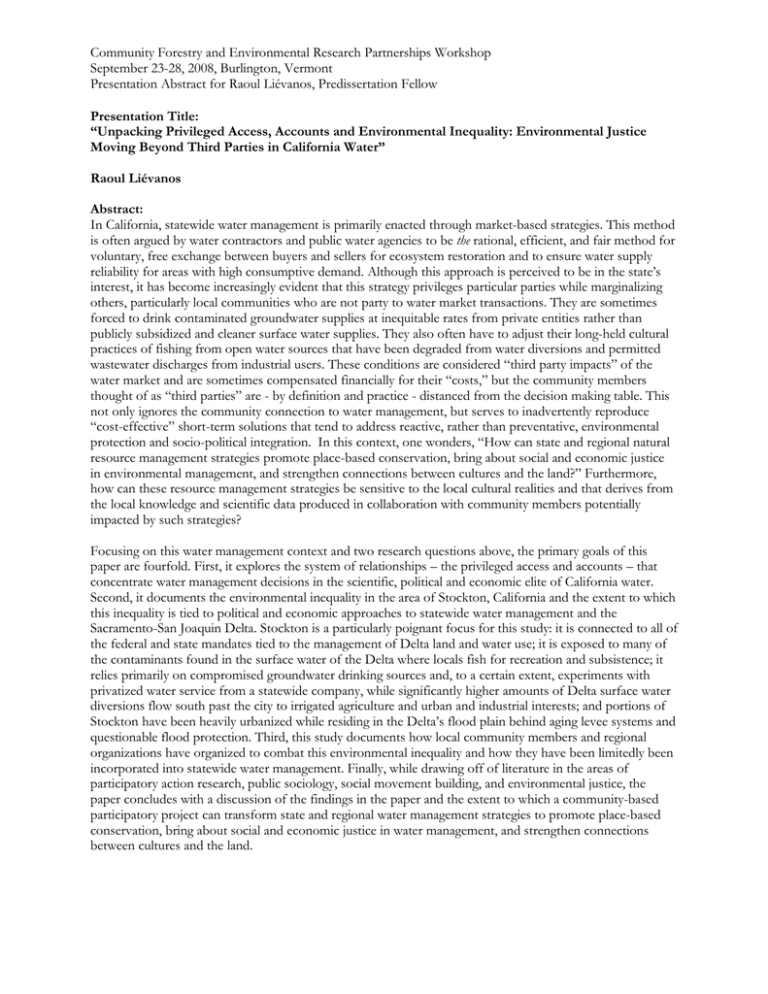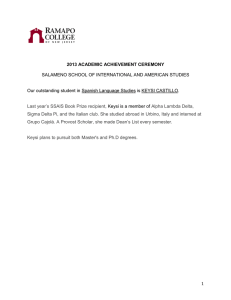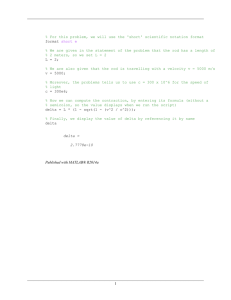Unpacking Privileged Access and Accounts around Water Quality: 'EJ Communities' Moving Beyond Third Parties in the Sacramento-San Joaquin Delta
advertisement

Community Forestry and Environmental Research Partnerships Workshop September 23-28, 2008, Burlington, Vermont Presentation Abstract for Raoul Liévanos, Predissertation Fellow Presentation Title: “Unpacking Privileged Access, Accounts and Environmental Inequality: Environmental Justice Moving Beyond Third Parties in California Water” Raoul Liévanos Abstract: In California, statewide water management is primarily enacted through market-based strategies. This method is often argued by water contractors and public water agencies to be the rational, efficient, and fair method for voluntary, free exchange between buyers and sellers for ecosystem restoration and to ensure water supply reliability for areas with high consumptive demand. Although this approach is perceived to be in the state’s interest, it has become increasingly evident that this strategy privileges particular parties while marginalizing others, particularly local communities who are not party to water market transactions. They are sometimes forced to drink contaminated groundwater supplies at inequitable rates from private entities rather than publicly subsidized and cleaner surface water supplies. They also often have to adjust their long-held cultural practices of fishing from open water sources that have been degraded from water diversions and permitted wastewater discharges from industrial users. These conditions are considered “third party impacts” of the water market and are sometimes compensated financially for their “costs,” but the community members thought of as “third parties” are - by definition and practice - distanced from the decision making table. This not only ignores the community connection to water management, but serves to inadvertently reproduce “cost-effective” short-term solutions that tend to address reactive, rather than preventative, environmental protection and socio-political integration. In this context, one wonders, “How can state and regional natural resource management strategies promote place-based conservation, bring about social and economic justice in environmental management, and strengthen connections between cultures and the land?” Furthermore, how can these resource management strategies be sensitive to the local cultural realities and that derives from the local knowledge and scientific data produced in collaboration with community members potentially impacted by such strategies? Focusing on this water management context and two research questions above, the primary goals of this paper are fourfold. First, it explores the system of relationships – the privileged access and accounts – that concentrate water management decisions in the scientific, political and economic elite of California water. Second, it documents the environmental inequality in the area of Stockton, California and the extent to which this inequality is tied to political and economic approaches to statewide water management and the Sacramento-San Joaquin Delta. Stockton is a particularly poignant focus for this study: it is connected to all of the federal and state mandates tied to the management of Delta land and water use; it is exposed to many of the contaminants found in the surface water of the Delta where locals fish for recreation and subsistence; it relies primarily on compromised groundwater drinking sources and, to a certain extent, experiments with privatized water service from a statewide company, while significantly higher amounts of Delta surface water diversions flow south past the city to irrigated agriculture and urban and industrial interests; and portions of Stockton have been heavily urbanized while residing in the Delta’s flood plain behind aging levee systems and questionable flood protection. Third, this study documents how local community members and regional organizations have organized to combat this environmental inequality and how they have been limitedly been incorporated into statewide water management. Finally, while drawing off of literature in the areas of participatory action research, public sociology, social movement building, and environmental justice, the paper concludes with a discussion of the findings in the paper and the extent to which a community-based participatory project can transform state and regional water management strategies to promote place-based conservation, bring about social and economic justice in water management, and strengthen connections between cultures and the land. Community Forestry and Environmental Research Partnerships Workshop September 23-28, 2008, Burlington, Vermont Presentation Abstract for Raoul Liévanos, Predissertation Fellow



